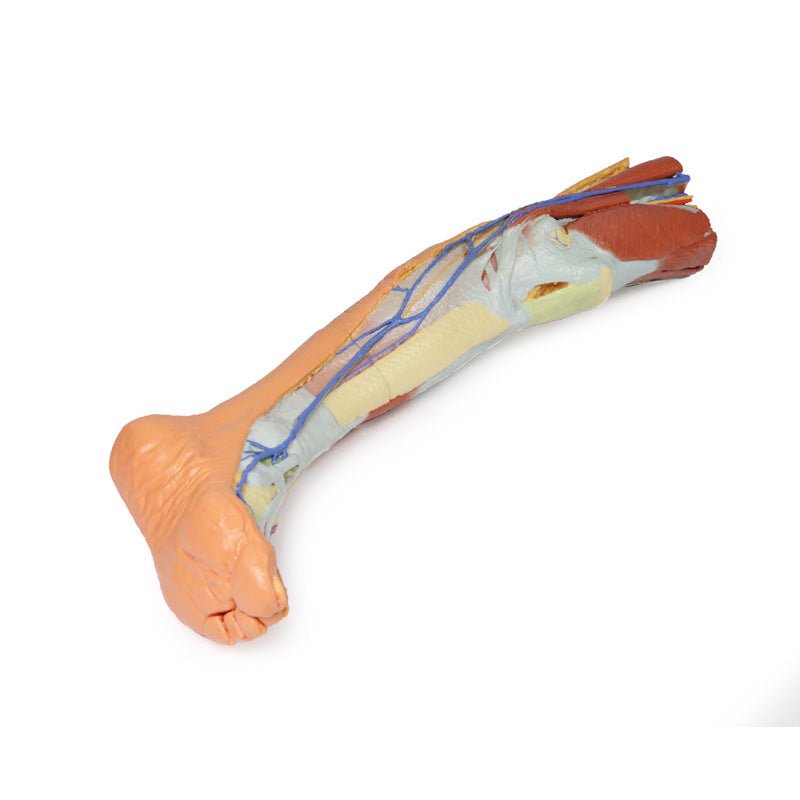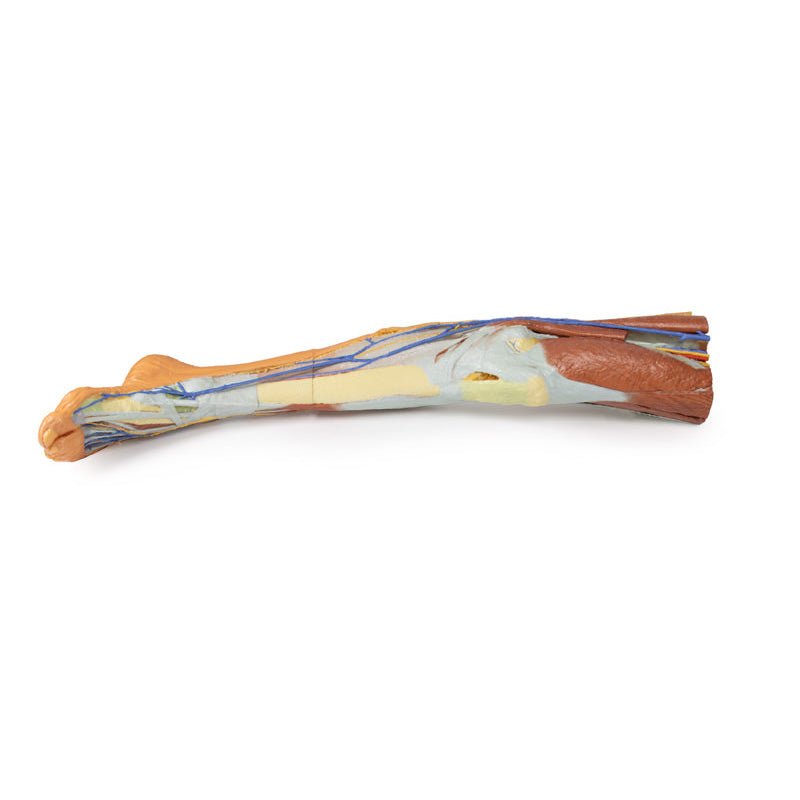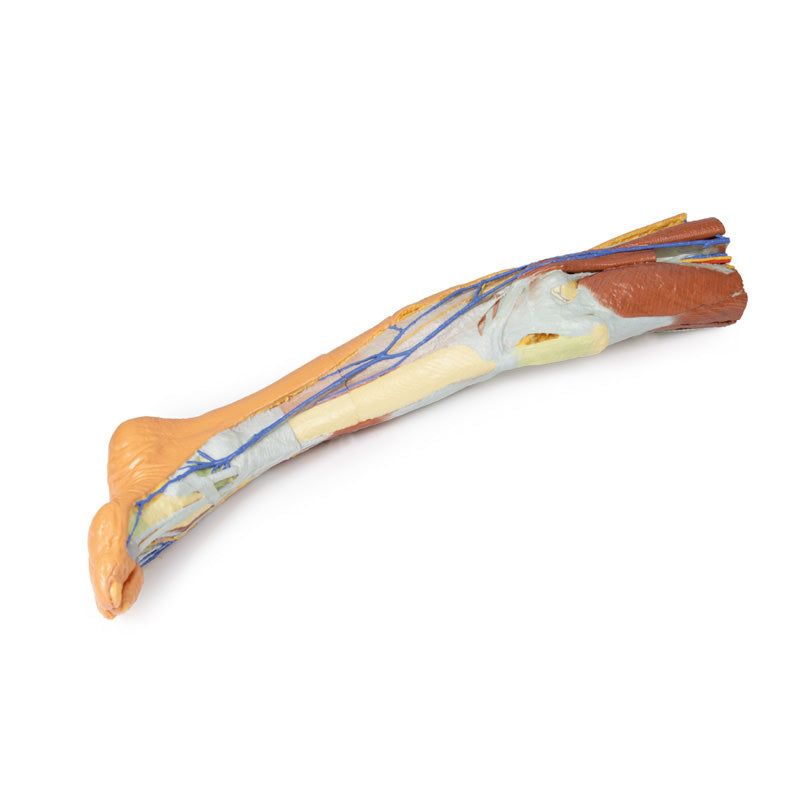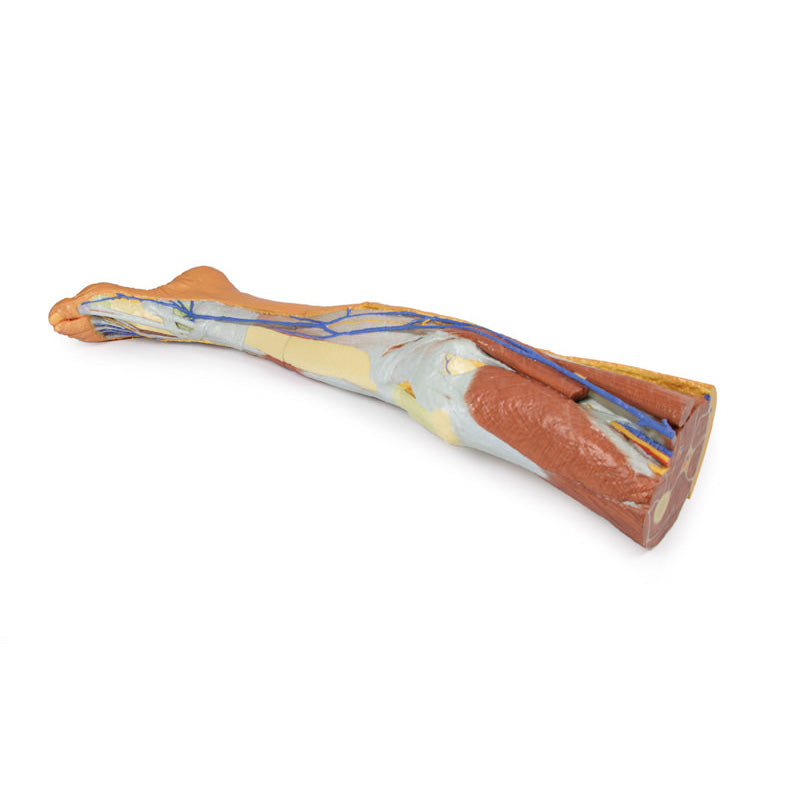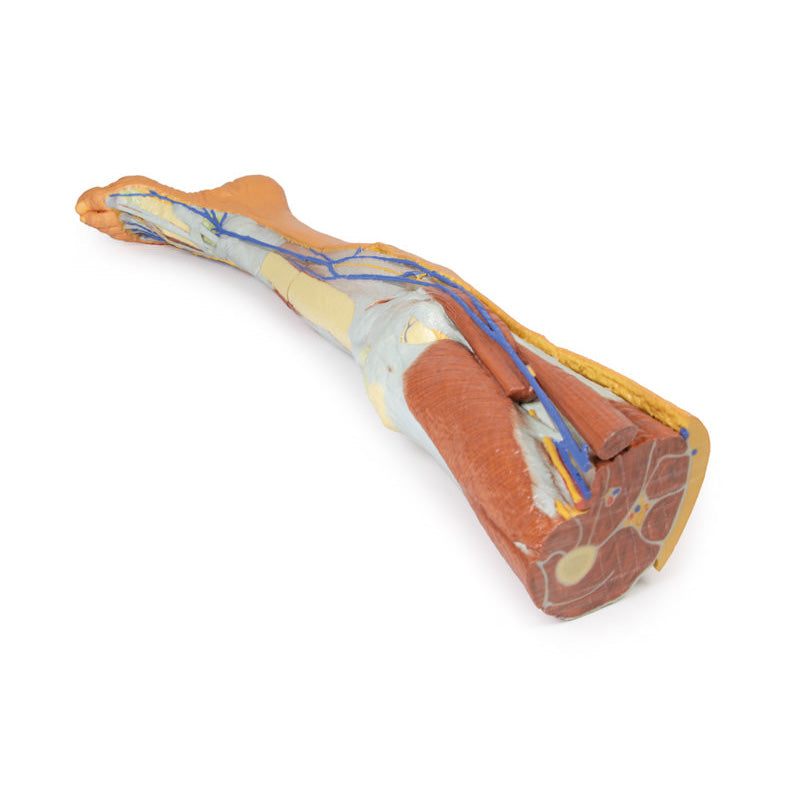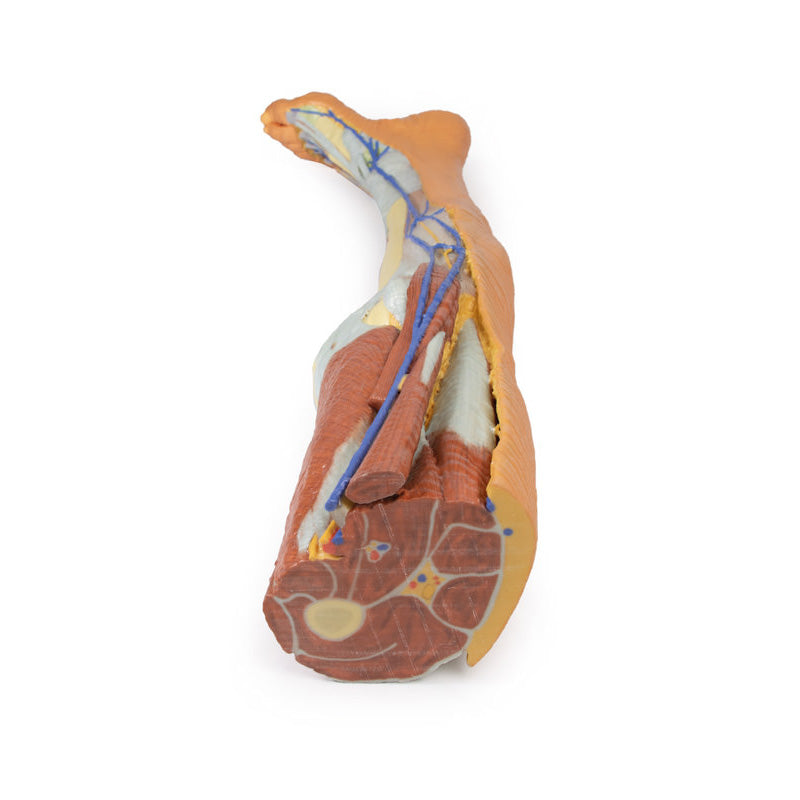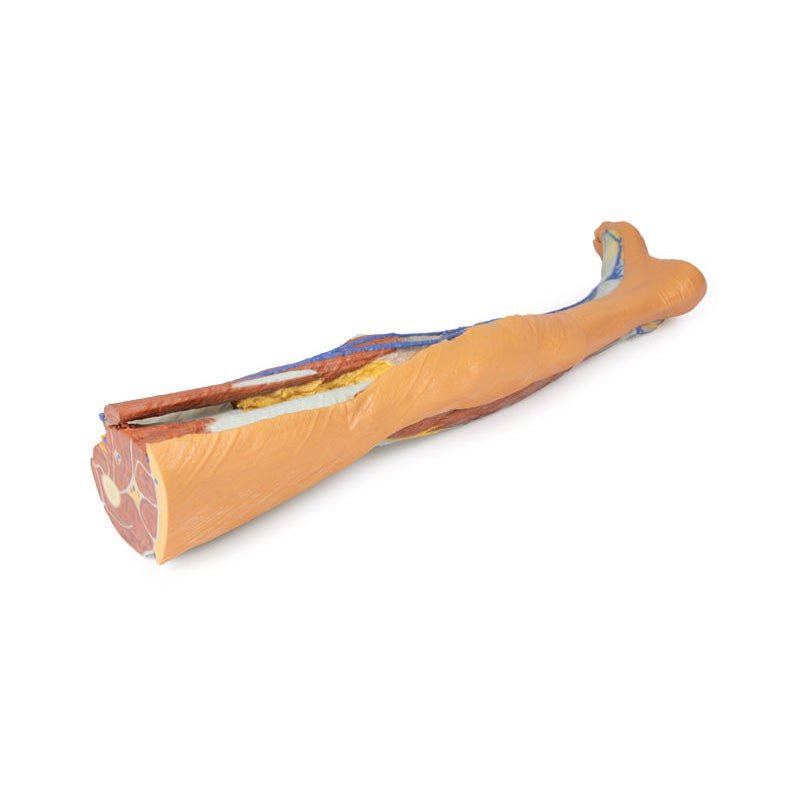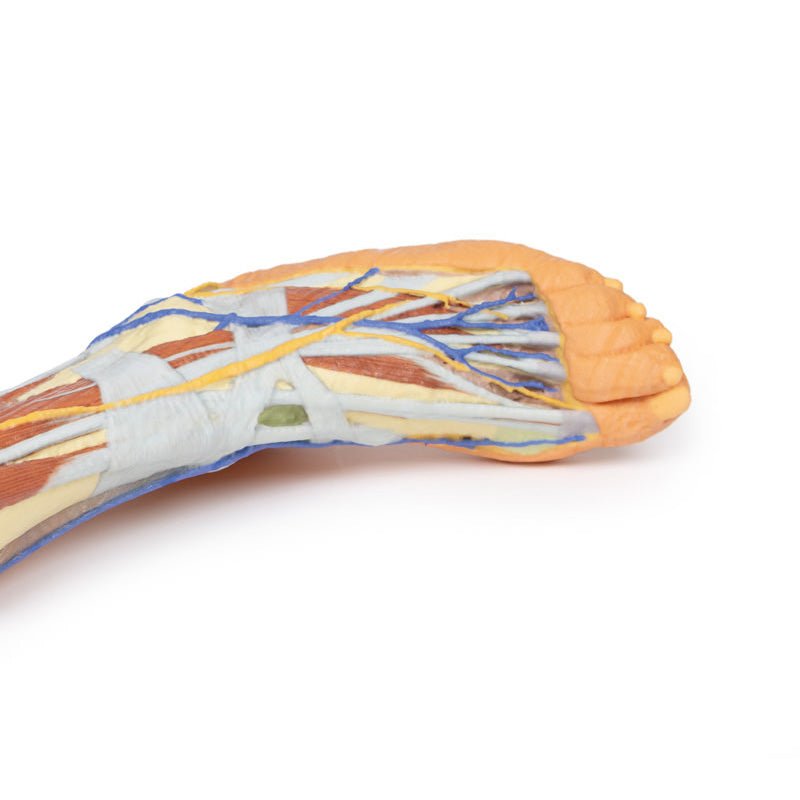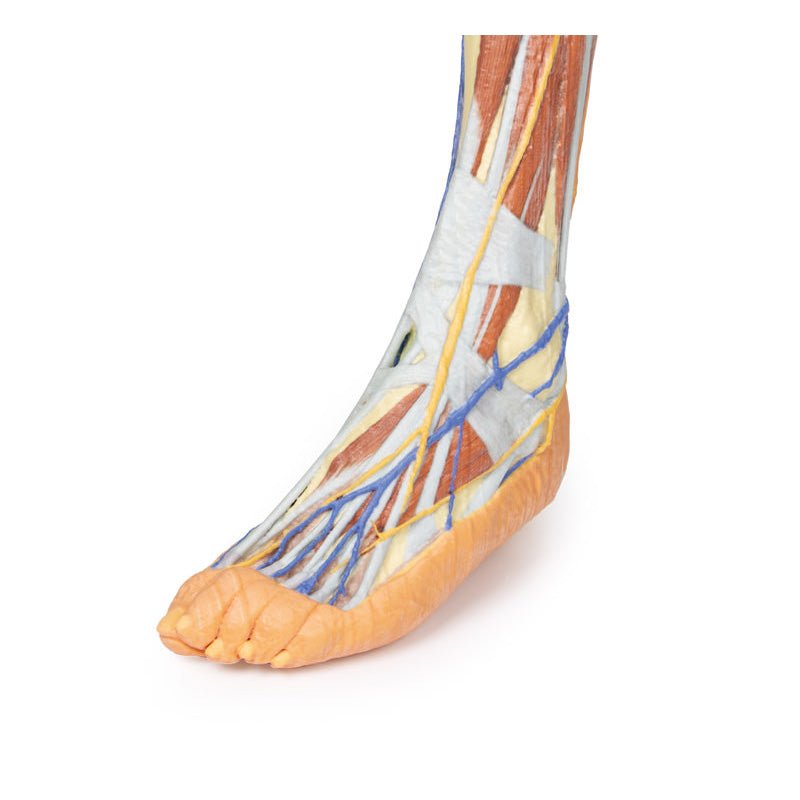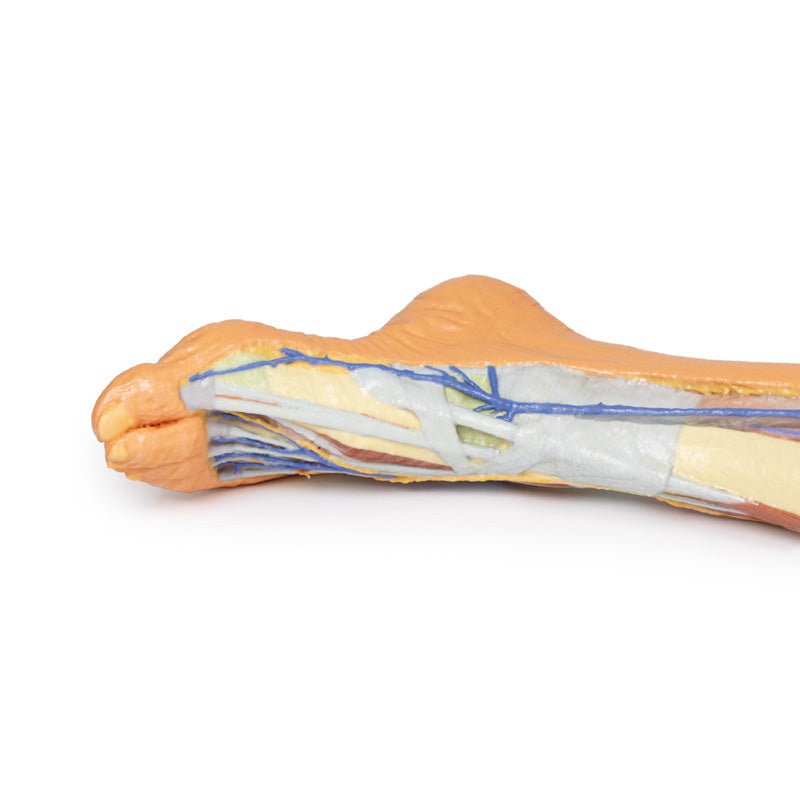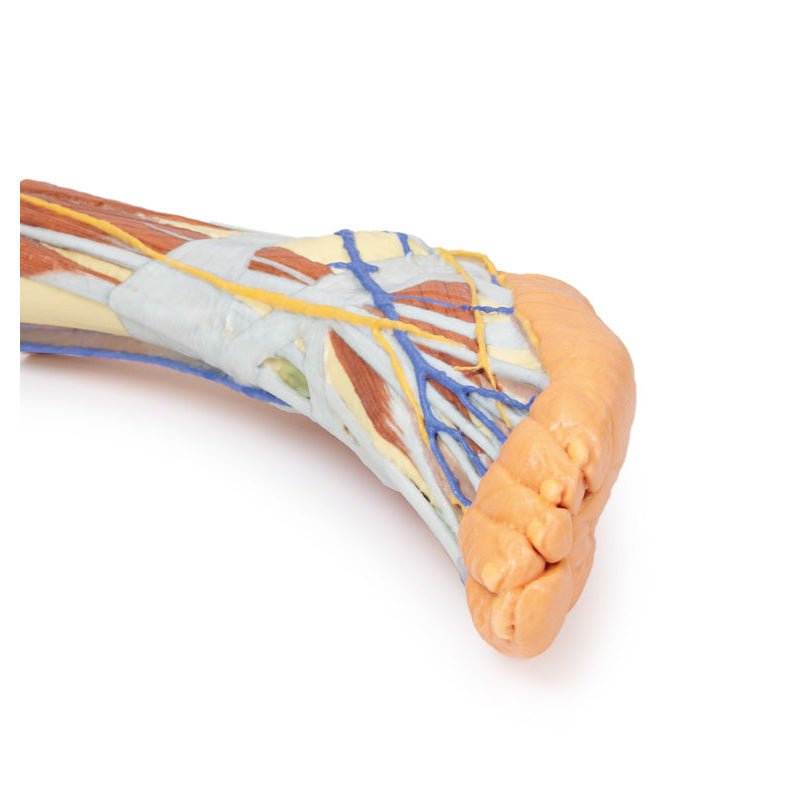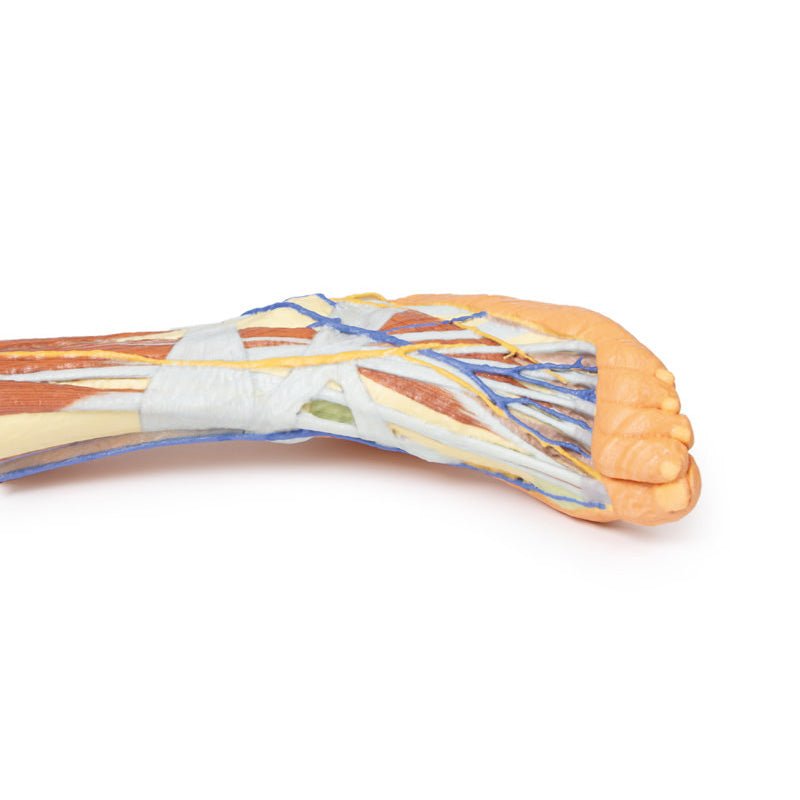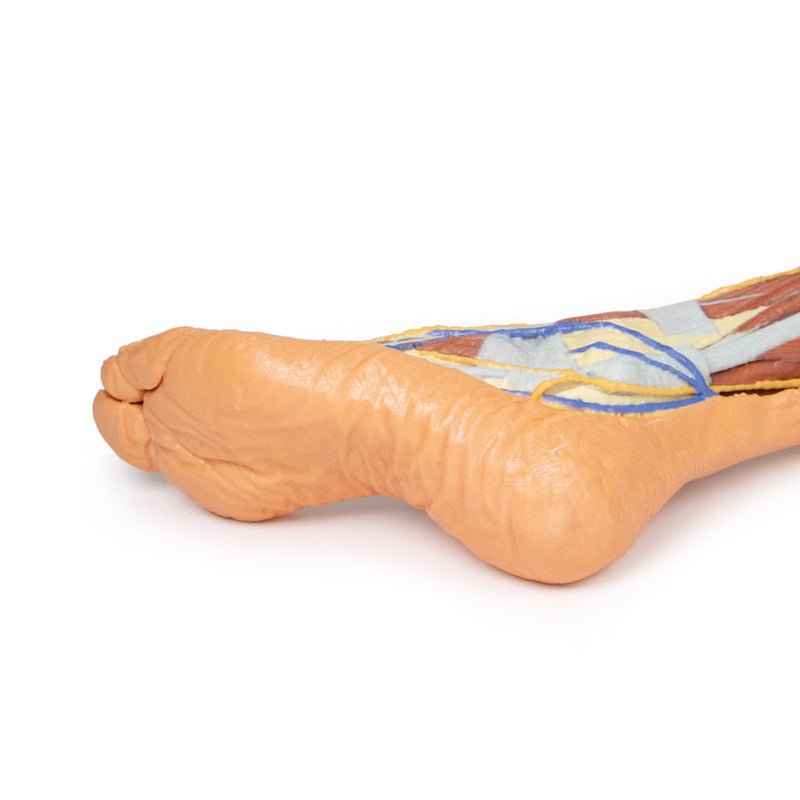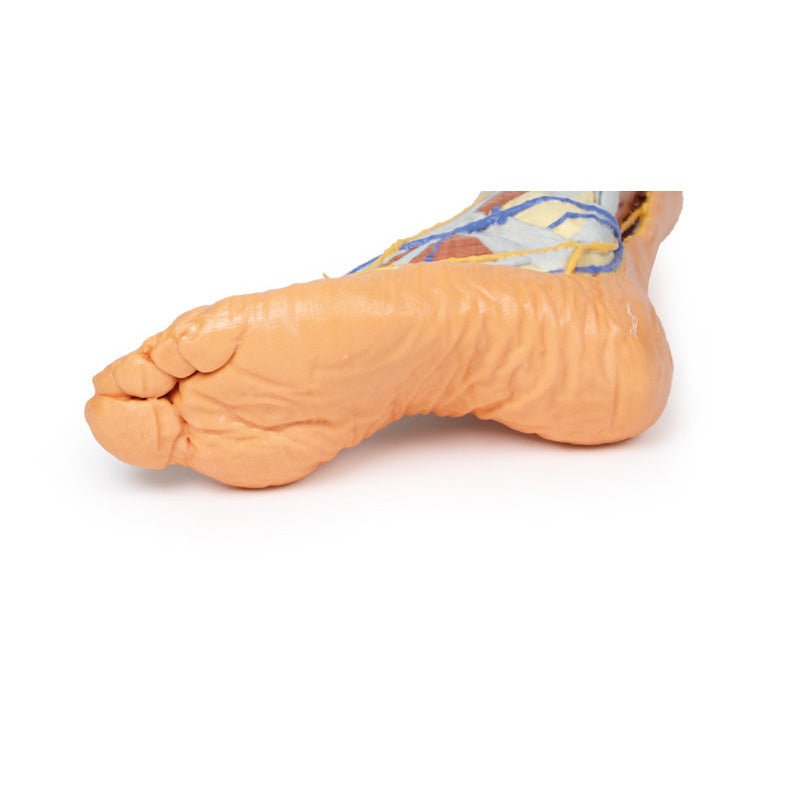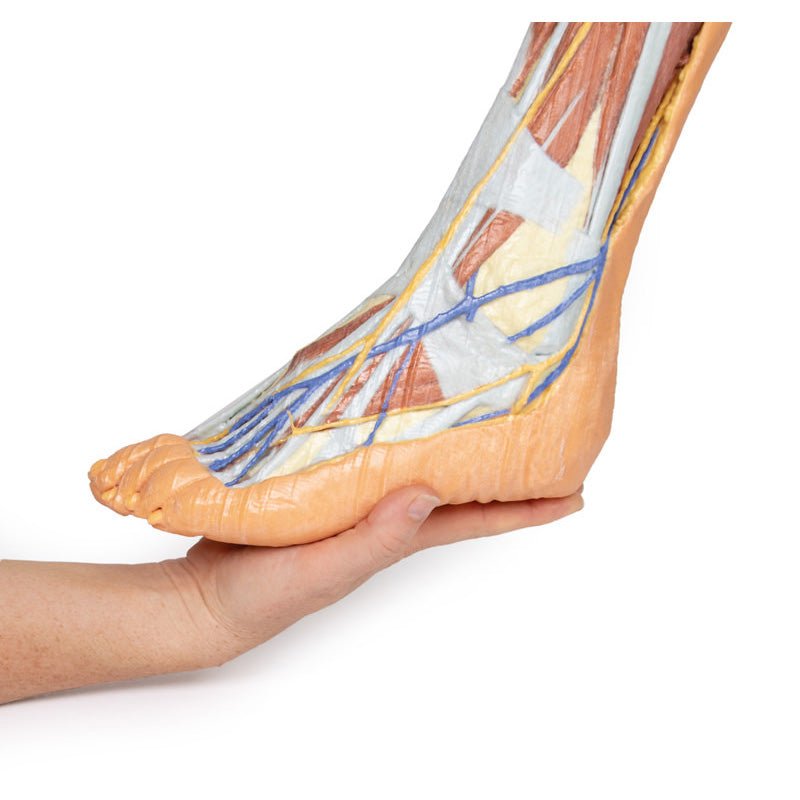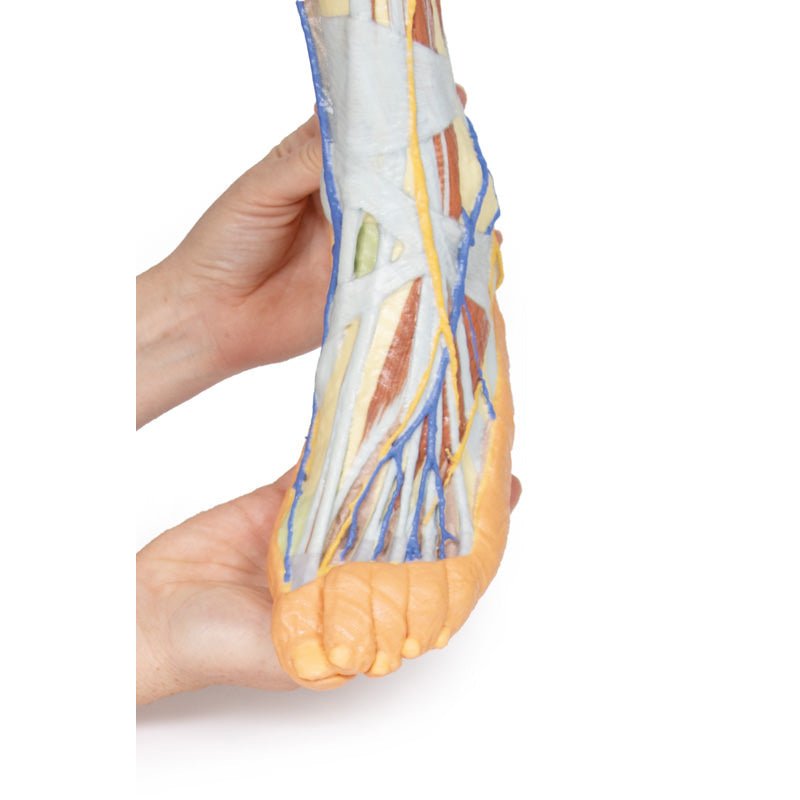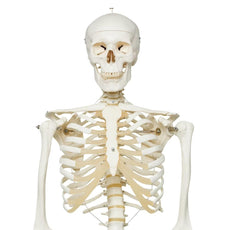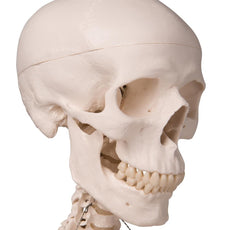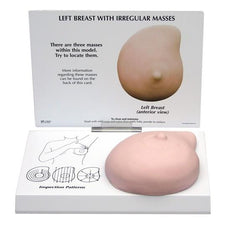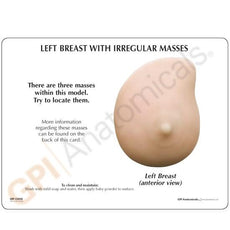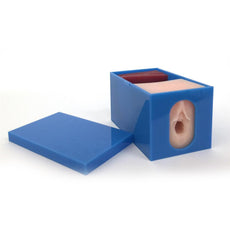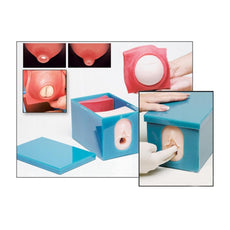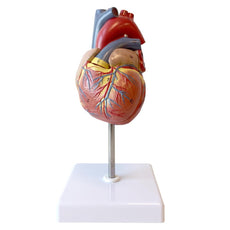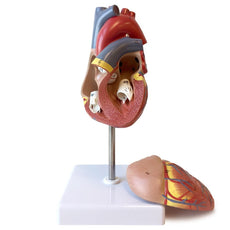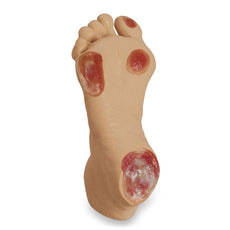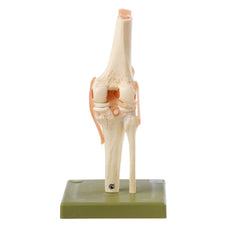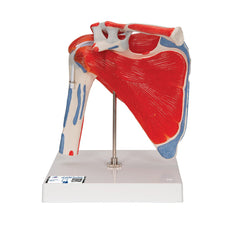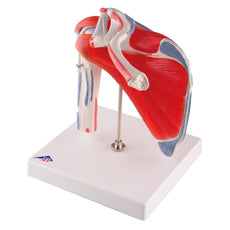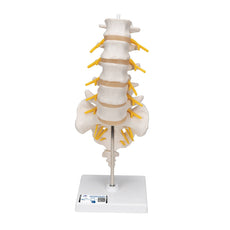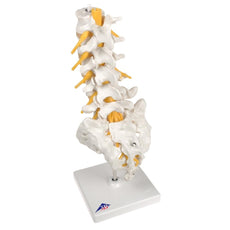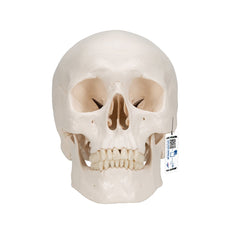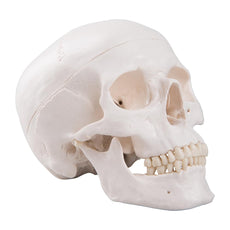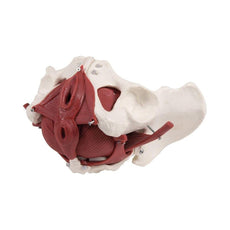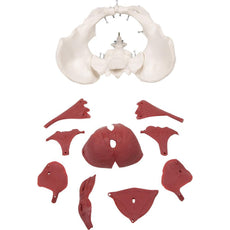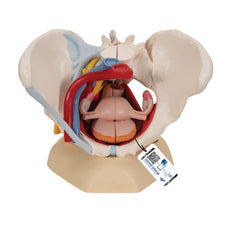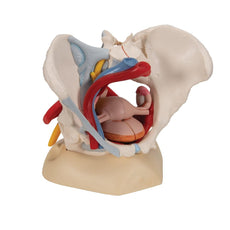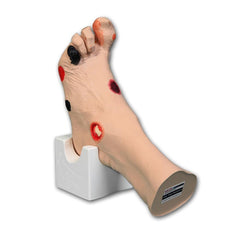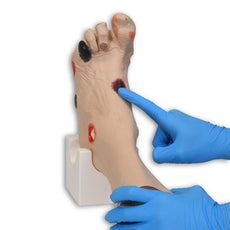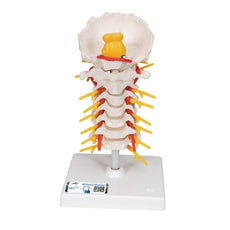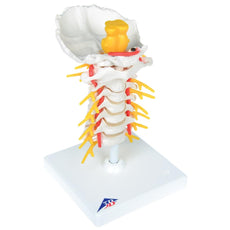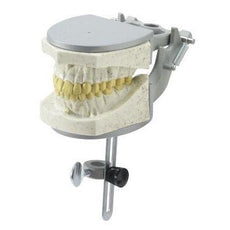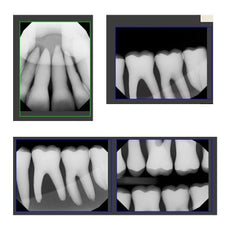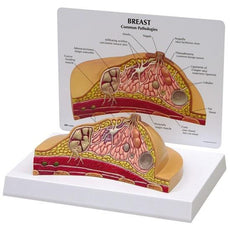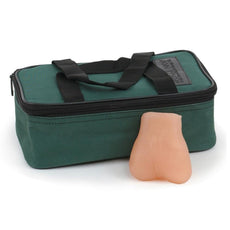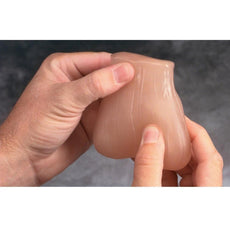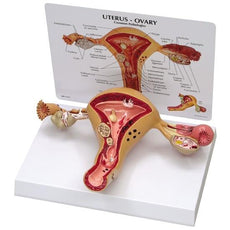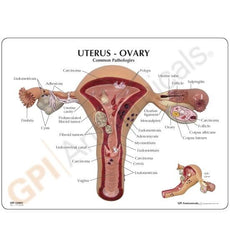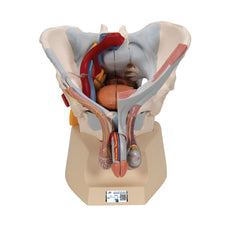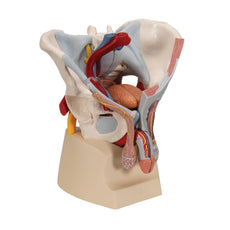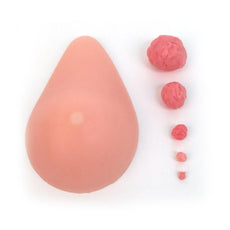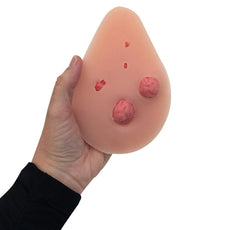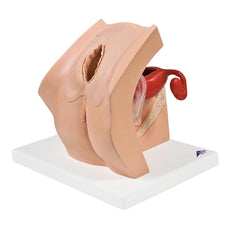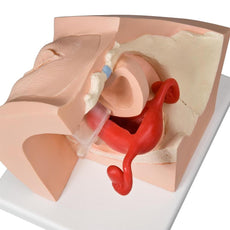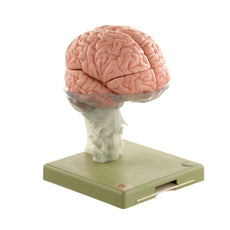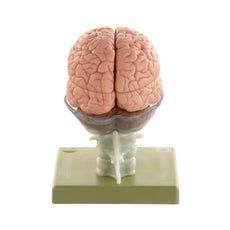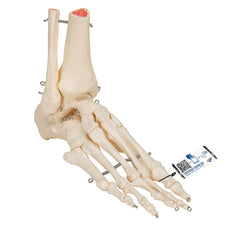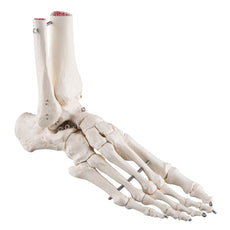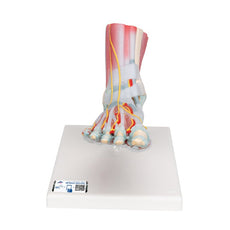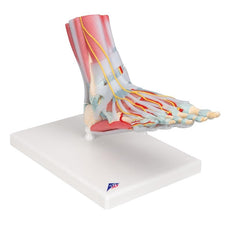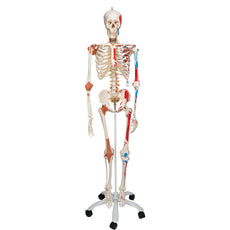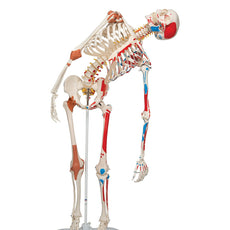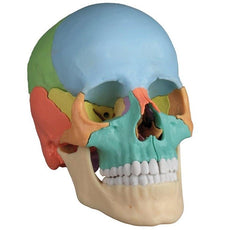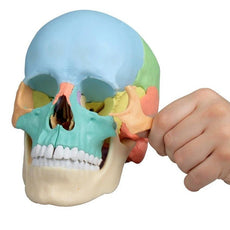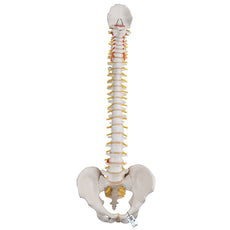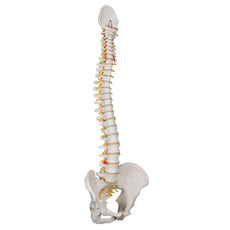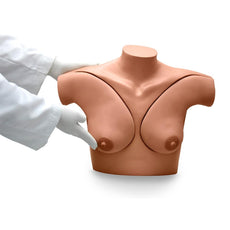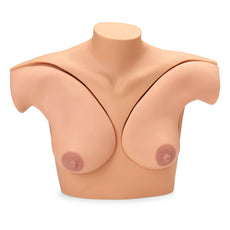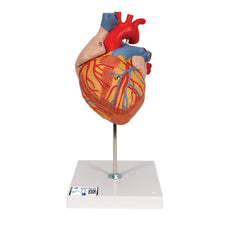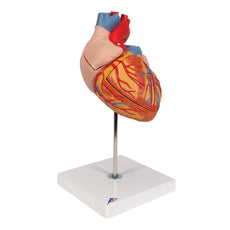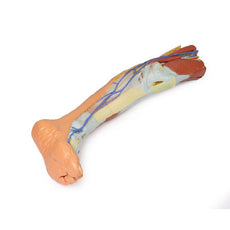Your shopping cart is empty.
3D Printed Lower Limb ƒ?? Superficial Dissection
The remainder of the thigh, leg and dorsum of the foot have been dissected to demonstrate superficial structures and compartmental musculature, except the posterior aspect of the specimen which has been left undissected. The course of the great saphenous vein is displayed from the medial aspect of the thigh to the medial malleolus and the medial aspect of the dorsal venous plexus. The origin of the small saphenous vein from lateral branches of the dorsal venous plexus is also visible to the margin of the dissected superficial fascia near the lateral malleolus. The deeper femoral artery, vein and nerve branches are visible deep to the anterior compartment musculature (and a sectioned sartorius muscle) entering the adductor canal. Near the medial aspect of the knee joint the saphenous nerve is visible passing superficially near the great saphenous vein on the surface of the posterior crural fascia and terminating as the medial cutaneous nerve of the leg branches. On the lateral aspect of the leg the medial and intermediate dorsal cutaneous branches from the superficial fibular nerve are preserved passing onto the dorsum of the foot adjacent to the dorsal venous plexus tributaries.
Download Handling Guidelines for 3D Printed Models
GTSimulators by Global Technologies
Erler Zimmer Authorized Dealer

11.0 lb
🎄 HOLIDAY SAVINGS - Ends Dec 31 🎄
Discount has been automatically applied for this item.
3D Printed Lower Limb ƒ?? Superficial Dissection
Item # MP1816
$3,899.00
$4,333.00
You save $434.00
Need an estimate?
Click Add To Quote

Features & Specifications
-
by
A trusted GT partner -
FREE Shipping
U.S. Contiguous States Only -
3D Printed Model
from a real specimen -
Gov't pricing
Available upon request
Frequently Bought Together
3D Printed Lower limb – superficial dissection
This 3D printed specimen represents the remainder of the lower limb portions of our male abdominopelvic and proximal thigh specimen (MP1765), sectioned proximally near midthigh and continuous to the partially dissected foot. The transverse section through the thigh exposes the neurovascular structures of the anterior, medial and posterior compartments. This includes the great saphenous vein superficial to the terminal branches of the femoral nerve, femoral artery and vein in the anterior compartment, and perforating branches of the deep femoral artery in the medial and posterior compartments.The remainder of the thigh, leg and dorsum of the foot have been dissected to demonstrate superficial structures and compartmental musculature, except the posterior aspect of the specimen which has been left undissected. The course of the great saphenous vein is displayed from the medial aspect of the thigh to the medial malleolus and the medial aspect of the dorsal venous plexus. The origin of the small saphenous vein from lateral branches of the dorsal venous plexus is also visible to the margin of the dissected superficial fascia near the lateral malleolus. The deeper femoral artery, vein and nerve branches are visible deep to the anterior compartment musculature (and a sectioned sartorius muscle) entering the adductor canal. Near the medial aspect of the knee joint the saphenous nerve is visible passing superficially near the great saphenous vein on the surface of the posterior crural fascia and terminating as the medial cutaneous nerve of the leg branches. On the lateral aspect of the leg the medial and intermediate dorsal cutaneous branches from the superficial fibular nerve are preserved passing onto the dorsum of the foot adjacent to the dorsal venous plexus tributaries.
Download Handling Guidelines for 3D Printed Models
GTSimulators by Global Technologies
Erler Zimmer Authorized Dealer
These items normal warranty are two years, however the warranty doesn’t cover “wear and tear”. The manufacturer does have 100% quality control on these models.
The models are very detailed and delicate. With normal production machines you cannot realize such details like shown in these models.
The printer used is a color-plastic printer. This is the most suitable printer for these models.
The plastic material is already the best and most suitable material for these prints. (The other option would be a kind of gypsum, but this is way more fragile. You even cannot get them out of the printer without breaking them).The huge advantage of the prints is that they are very realistic as the data is coming from real human specimen. Nothing is shaped or stylized.
The users have to handle these prints with utmost care. They are not made for touching or bending any thin nerves, arteries, vessels etc. The 3D printed models should sit on a table and just rotated at the table.
The models are very detailed and delicate. With normal production machines you cannot realize such details like shown in these models.
The printer used is a color-plastic printer. This is the most suitable printer for these models.
The plastic material is already the best and most suitable material for these prints. (The other option would be a kind of gypsum, but this is way more fragile. You even cannot get them out of the printer without breaking them).The huge advantage of the prints is that they are very realistic as the data is coming from real human specimen. Nothing is shaped or stylized.
The users have to handle these prints with utmost care. They are not made for touching or bending any thin nerves, arteries, vessels etc. The 3D printed models should sit on a table and just rotated at the table.

by — Item # MP1816
3D Printed Lower Limb ƒ?? Superficial Dissection
$3,899.00
$4,333.00
Add to Cart
Add to Quote



